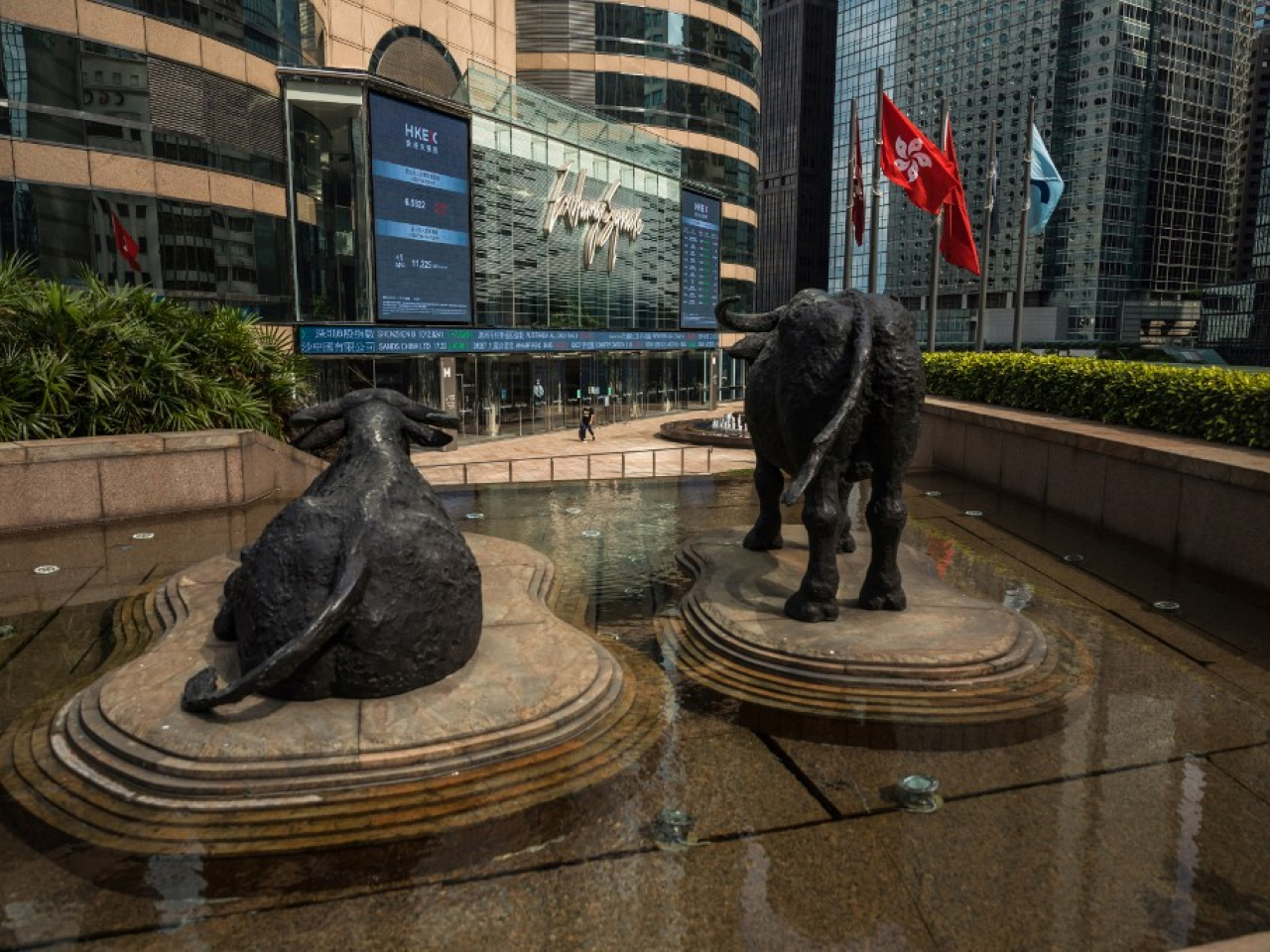Chinese shares pulled back from a decade high on Thursday as President Xi Jinping and his US counterpart Donald Trump concluded a high-stakes meeting in South Korea with a trade-war truce that investors had broadly expected.
In Hong Kong, the benchmark Hang Seng Index ended trading for the day down 63 points, or 0.24 percent, at 26,282.
Up north, the benchmark Shanghai Composite Index hit its highest level since 2015 at the start of the session but closed down 0.73 percent at 3,986 while the Shenzhen Component Index ended 1.16 percent lower at 13,532.
The ChiNext Index, tracking China's Nasdaq-style board of growth enterprises, lost 1.84 percent to close at 3,263.
Investors appeared heartened by signs of cooling tensions between the world's top two economies after recent escalations, while also positioning defensively with a sense of deja vu that the real deal may offer far less to celebrate.
Previous trade negotiations have seen promising starts followed by setbacks.
The market reaction was choppy with traders trying to make sense of the information released so far. The yuan retreated from near a one-year high against the dollar after the meeting.
The Commerce Ministry in Beijing confirmed that China and the United States had agreed to extend their temporary trade truce for another year as part of an agreement they reached after top economic officials met in Malaysia last week.
China's CSI Rare Earth Industry Index rose more than 2 percent, while defensive plays such as liquor and banking pared earlier gains. The AI sector index was down nearly 2 percent.
"The response from markets has been cautious in contrast to Trump's enthusiastic characterisation of the meeting with Xi as 'a 12 out of 10'," said Besa Deda, chief economist at advisory firm William Buck in Sydney.
"There are still some structural issues that have been left unresolved, which could be contributing to the market's response and takes some shine off the truce."
The meeting on Thursday looked like an attempt to reset the US-China narrative by reopening selective trade channels to restore confidence, rather than a fundamental reset of geopolitical relations, analysts say.
"It's hard to call this a clean risk-on," said Charu Chanana, chief investment strategist at Saxo in Singapore. "Equity traders have seen this playbook before – upbeat tone, little follow-through."
There are plenty of gaps still left, though, in the Trump-Xi headlines with no timeline on rare earths, soybeans not a huge win if China's crushers don't need imports, and no mention of Nvidia's Blackwell chips, she added.
Partial tariff rollbacks may also do little to help loss-making Chinese exporters and manufacturers, or reverse weak consumer demand at home.
"Overall, this looks like a tactical pause rather than a strategic breakthrough," said Tareck Horchani, head of prime brokerage dealing at Maybank Securities. (Reuters/Xinhua)





